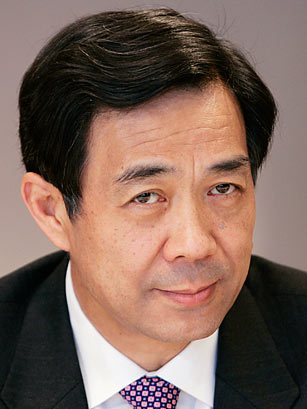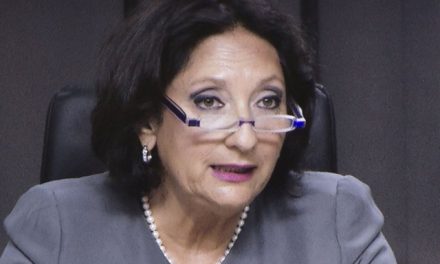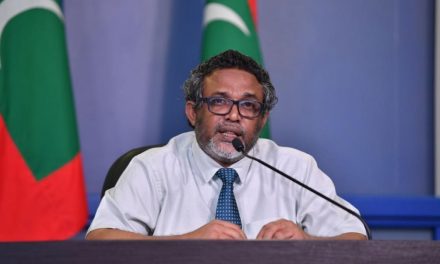
Bo Xilai
21 September 2012. Former police chief of Chongqing, Wang Lijun, faced trial for helping to cover up the murder of a British businessman, Neil Heywood, by Gu Kailai, the wife of Bo Xilai. He also secretly collected evidence used to convict her, according to a lawyer for the police chief and an official account released Tuesday at the end of his trial. During the trial, he confessed to the most serious charge against him, defection, and did not contest the other three charges — abuse of power, taking bribes and bending the law for personal gain, a court spokesman said. The first to charges were heard in a closed door session and the last two were heard in a public hearing in which journalists were banned. It was unclear when a formal verdict or sentence would be announced. The trial of Wang raised doubts about the transparency of the legal system in China where verdicts are often predetermined, especially when the trial is tied to politics. Wang caused the downfall of Bo Xilai when he fled to US Consulate in Chengdu, the capital of the southwestern province of Sichuan, in February seeking asylum. He told diplomats there about Mr. Heywood’s murder last year. After the hearing ended, the court spokesman read a statement detailing Wang’s crimes and mitigating factors cited by the prosecution and the defense, including Wang’s help to investigators in other cases. Wang had provided “blood samples and other material” to Chinese investigators that led to Gu Kailai’s conviction. Gu was given a suspended death sentence. On the charge of abuse of power, the statement added that Wang forged approval for the surveillance of senior officials visiting from Beijing. The statement also revealed that Wang had taken bribes amounting to $ 475,000. A resident of Chongqing with police contacts said that Wang would probably receive either a suspended death sentence or a 20-year prison sentence, given the nature of the case. He added that in sparing Mr. Wang from execution, some party officials could employ Wang as a weapon against Bo and his allies, because Wang knows many secrets about Bo. An official account of Wang’s trial released by the Chinese government on Wednesday and published in Xinhua revealed that Bo Xilai tried to cover up the murder of a British businessman by Bo’s wife. The official account said Wang discussed with Gu on 12 November 2011, the idea of trying to detain Heywood on the pretext of a drug-related crime. The next day, according to the account, Gu poisoned Heywood. On 14 November2011, she told Wang at her home about the killing. Wang secretly recorded the conversation. The account said Gu had testified that Wang initially promised to help cover up the crime. However, the account did not explain what made Wang and Gu, who seemed close accomplices, turn against each other. It noted that Wang and Gu had once had a “close relations”. But there were also arguments between them, including a dispute over a near miss by her son while driving to meet Wang. By mid-December, the relationship was souring, and Wang said he felt the subject of hostility. He decided to safeguard himself by reinvestigating the case and “properly protect key material evidence, including blood extracted from Neil Heywood’s heart”. He gave this to a trusted aide. When Heywood’s body was discovered at a Chongqing hotel on 15 November 2011 Wang specifically assigned a policeman, Guo Weiguo, to take charge of the investigation and recalled another officer who was already on the scene. The next morning, four policemen — Guo and three others — all agreed to report that Mr. Heywood died after drinking too much alcohol. Mr. Wang supported the assessment, the account said. The four policemen were tried last month for protecting Ms. Gu and found guilty. The account said that on 17 November 2011, Wang gave Gu the digital recording from a surveillance camera at the hotel where Heywood had died. It showed that Gu was the last person to leave the room that night. Wang said in his testimony why he had protected Gu. “After arriving in Chongqing, I frequently went to Bogu Kailai’s home,” he said. “I felt Bogu Kailai was quite nice to me.” The Xinhua report does not say why Wang confronted Bo with the Heywood murder. But after Bo slapped him on 29 January 2012, Wang asked three police allies to again collect evidence of Heywood’s murder and to keep the evidence in separate places. After he was taken to Beijing, he wrote a letter to one of the police allies, Li Yang, instructing him to give Heywood’s blood sample to investigators. The account also revealed that the bribe of $450,000 that Wang took was from Xu Ming, a tycoon close to the Bo family and the boss of Dalian Shide group. The bribe was in the form of two Beijing flats in the name of Wang’s father-in-law. Wang released three people from custody at the request of Xu. Wang also received $32,000 from Yu Junshi, a businessman, for the rental of Wang’s villa in Chongqing, the report said. In return Wang released a detainee. Yu is a former military intelligence officer who worked as a fixer for the Bo family. Yu went missing in March 2012 after Bo was impeached. Wang Yuncai, a lawyer for Wang, said in a telephone interview that the Xinhua report was a mostly accurate account of what was said during the trial. But she contended that Wang had not taken bribes from Xu and Yu. Instead, she said, Gu arranged those favors through the men for Wang and Wang did not regard them as payments and did no favors in return. There was no mention of Bo during Gu’s trial. The fact that it was mentioned in Wang’s trial suggests that Bo will have to be dealt with before the 18th Congress of the Chinese Communist Party (CCP). The re-appearance of the incoming leader Xi Jinping after a fortnight of absence suggests this. All these accounts suggest that Bo could be dealt with more severely than what was widely expected. Bo could face death sentence for corruption or a life sentence for a murder cover up charge. Bo still wields formidable support in the Chongqing province and was slated to take a place in the highest standing committee that rules the country. This is one of the reasons for the delay in announcing the date for the forth coming party congress which will usher in a new generation of younger leaders in a peaceful succession of power.














